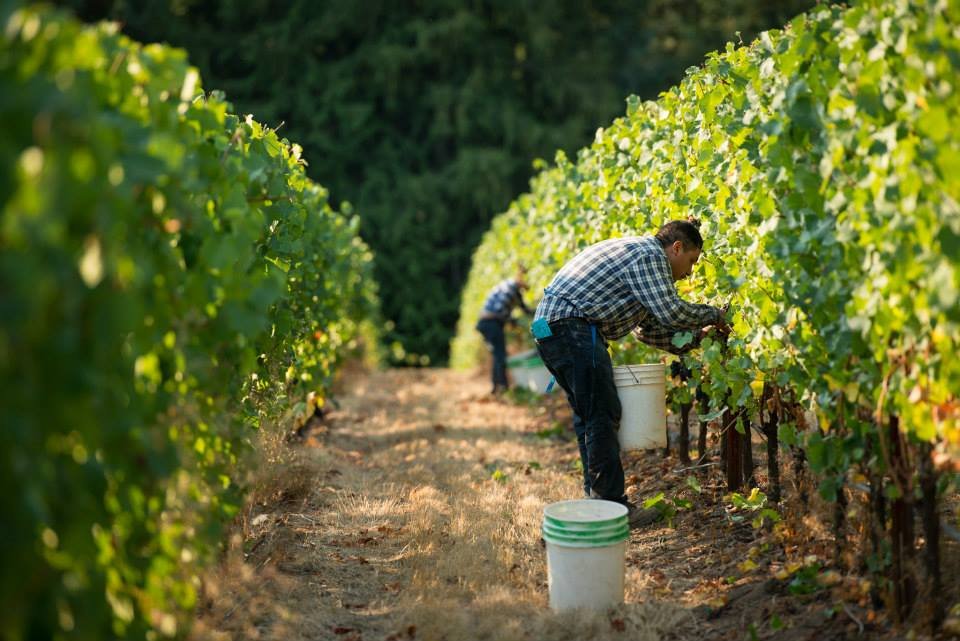
Cultivars.
We are proud to grow four different varieties of Pinot Noir grapes. Each has been selected for it’s qualities and desirability in winemaking.
All of our grapes are planted on 3309 rootstock.
-
Block A: 92 Rows, 7x4 spacing. Planted 2007, 3.85 acres.
Block D: 72 Rows, 7x4 spacing. Planted 2008, 3.14 acres.
Higher in quality and consistency than the other clones, 777 possesses denser and more complex notes of earth, black fruit, cassis, leather and tobacco. It is known for it’s strong aromas with good structure and well-balanced tannins.
-
Block B: 46 Rows, 7x4.83 spacing. Planted 2009, 3.02 acres.
Pinot noir Dijon 115 type produces moderate yields of small berries with high sugar content, intense flavor and excellent color. Growing best in cool climates, the berries reliably develop excellent color. This variety is capable of producing lush red wines of great elegance and finesse.
-
Block C: 34 Rows, 7x4.83 spacing. Planted 2009, 1.19 acres.
This is another of the Dijon clones, characterized by small berries, which result in a more intense color than many Pinot Noirs, and good tannin structure suitable for aging.
-
Block E: 13 Rows, 7x4 spacing. Planted 2008, 1.04 acres.
Block F: 68 Rows, 7x4.83 spacing. Planted 2009, 6.33 acres.
Named for the Pommard region of Burgundy where it’s historically been grown, Pinor Noir Pommard produces deeper and darker fruits than most clones. While the region it was historically grown in makes lighter bodied reds, Pommard stands out as a big bold red amongst the Chardonnay and other Pinot Noir clones grown in the region. Wines made from this clone often age better than the lighter bodied Pinots and have a more intense aroma of dark fruits with rich, ripe tannins.

Harvested by Hand.
At Madrona Hill Vineyard, we pride ourselves on the meticulous process of hand-harvesting our grapes. In an era where machines often dominate the agricultural landscape, we remain steadfast in our belief that the touch of human hands brings unrivaled advantages to our winemaking.
The labor-intensive nature of hand-harvesting embodies our commitment to supporting and uplifting our local community. By providing employment opportunities to skilled workers, we cultivate relationships with individuals who share our passion for winemaking. This harmonious collaboration produces wines that ripple with not only the skill and knowledge of the winemaker but also the dedication and pride of every hand involved.
Our dedication to this time-honored method ensures that each bottle of our wine is a testament to the artistry and craftsmanship that goes into every step of the winemaking process.